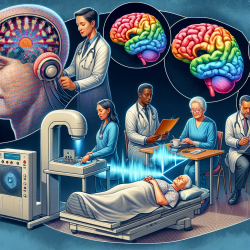As a practitioner dedicated to creating positive outcomes for children, it's crucial to leverage the insights and advice of those who navigate the service landscape daily: caregivers. A recent study titled "Don't Promise Something You can't Deliver:” Caregivers' Advice for Improving Services to Adolescents and Young Adults with Autism offers invaluable recommendations that can significantly enhance the quality of services provided to youth with autism spectrum disorders (ASD).
Key Recommendations for Practitioners
1. Provide a Roadmap to Services
Caregivers emphasized the need for a clear and concise roadmap to navigate the service landscape. This involves:
- Clarifying the process of identifying and procuring services.
- Shifting the onus of locating and coordinating services from caregivers to providers.
By creating comprehensive guides and support systems, practitioners can alleviate the stress caregivers face and ensure that families are well-informed and supported.
2. Improve Access to Services
Access to services remains a significant barrier. Caregivers suggested several practical measures:
- Integrating services into a "one-stop shop."
- Preparing families in advance for key transitions.
- Increasing funding and insurance coverage for essential services.
- Addressing policy limitations and reducing waiting lists.
- Offering flexible service locations and times to accommodate unique family needs.
Implementing these changes can make services more accessible and reduce the burden on families.
3. Address Gaps in Services
Caregivers identified several gaps in the current service landscape, including:
- Social skills training and socialization services.
- Employment services and vocational training.
- Transition services for youth aging out of the school system.
- Residential crisis stabilization services.
By developing and expanding these services, practitioners can better meet the diverse needs of youth with ASD.
4. Educate on Autism
Education is a critical component for improving services. Caregivers recommended:
- Training providers and other professionals about ASD.
- Educating families to better support their loved ones.
- Raising societal awareness to foster a more inclusive and understanding community.
Continuous education ensures that all stakeholders are equipped with the knowledge and skills to support youth with ASD effectively.
5. Build Relationships
Caregivers stressed the importance of relationship-building, which involves:
- Adopting person-centered care approaches.
- Exhibiting qualities such as compassion, empathy, and patience.
- Using strategies to engage and understand the unique needs of each individual.
- Collaborating with families to build trust and ensure transparent communication.
Strong relationships between providers, youth, and families are foundational to delivering effective and compassionate care.
Moving Forward
By integrating these caregiver insights into practice, practitioners can significantly improve the quality and accessibility of services for youth with ASD. These recommendations not only address logistical barriers but also emphasize the importance of empathy, understanding, and collaboration.
To read the original research paper, please follow this link: "Don't Promise Something You can't Deliver:” Caregivers' Advice for Improving Services to Adolescents and Young Adults with Autism.










